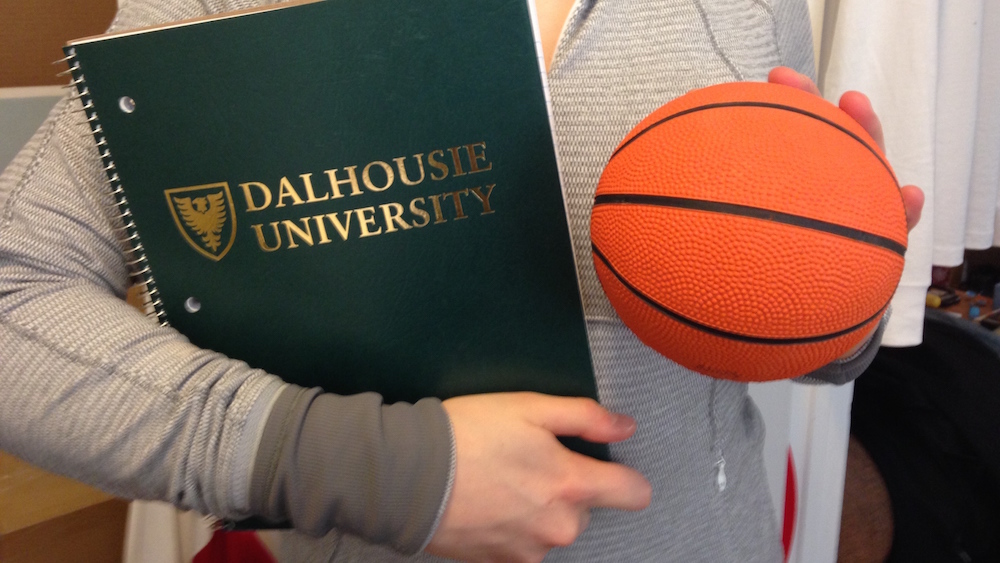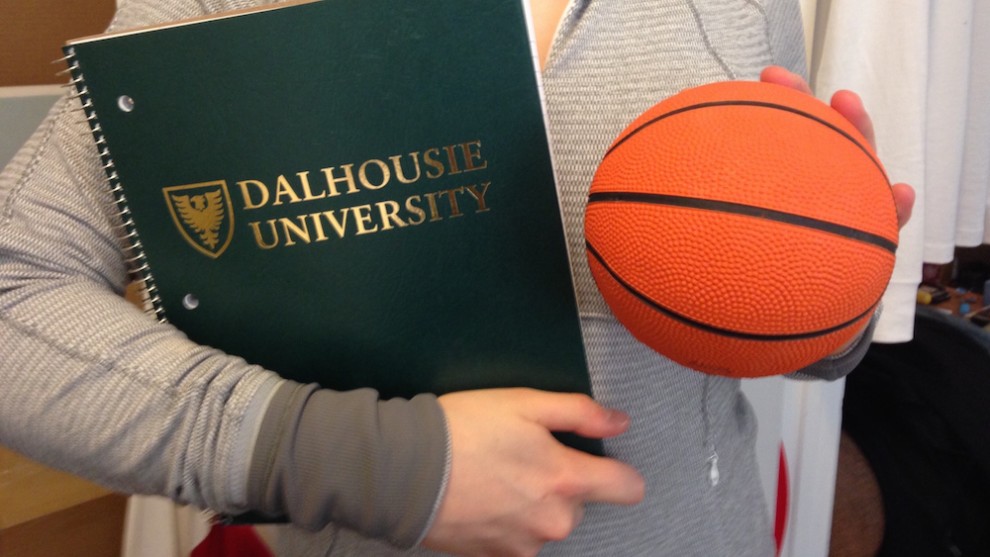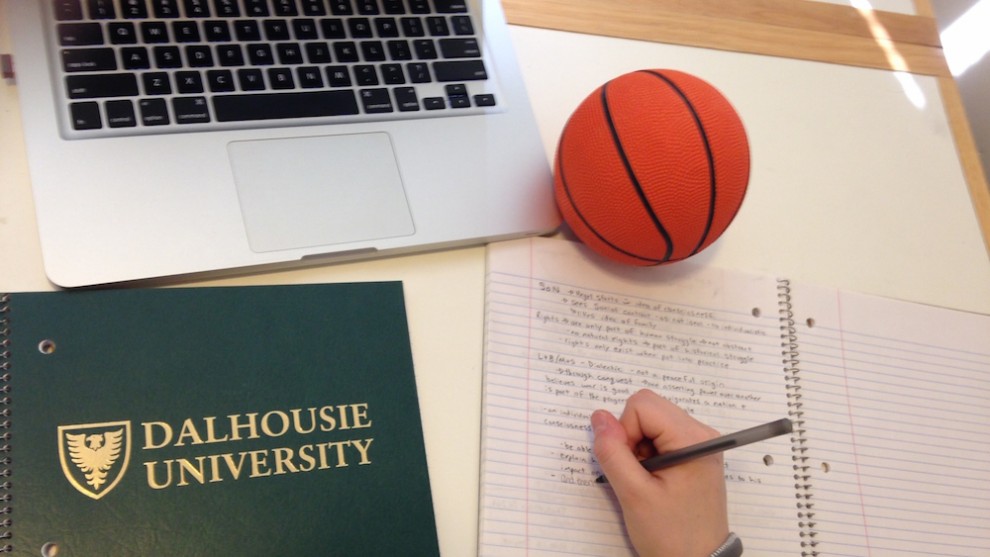Commitment
The life of a student-athlete: hard work, big reward
A 'lot of long nights' when you're on a varsity team

caption
Student-athletes need to keep up their GPA to stay on the team.
caption
Student-athletes need to keep up their GPA to stay on the team.Life as a student-athlete in university is a big commitment.
“Many people really have no idea of what it takes to be a successful varsity student-athlete,” says Rick Scott, the head coach of the Dalhousie Tigers women’s volleyball team. “I believe it’s extremely impressive what our student-athletes are able to accomplish.”
Student-athletes put in 30-plus hours for their sport per week across practices, workouts, games and travel, on top of their academic workload, says Scott.
One of Scott’s star players, Mieke Dumont, a second-year kinesiology student and academic all-Canadian, says it requires a tremendous effort to be successful both academically and athletically.
“I try and do four to five hours of homework a day on top of classes and labs,” says Dumont. “It’s tough with volleyball and school.
“It’s a lot of planning, I need to plan my weeks ahead and I plan every single day to try and get things done so I can make everything work.”
Jarred Reid is a fourth-year business management student and an academic all-Canadian member of the Tigers men’s basketball team. He agrees that finding the balance between academics and athletics is a difficult task.
“The best way to describe it is lots of long nights,” says Reid. “Road trips you’ll be out, you know, Cape Breton, Memorial, P.E.I., the weather is a factor you might have to stay up till 3:00 a.m. finishing a paper in a hotel room.”
Once he tried to get the team to head home early from a road trip so he could write a midterm.
“Straight off the bus, come to the midterm 10-15 minutes late to go straight into like a three-hour exam,” he says.
Reid feels that experience has helped him learn how to juggle his schedule.
“You get better at it as you go along,” he says. “You learn the little ins and outs, like talking to your profs all the way throughout the semester so they know what the deal’s gonna be.”
Travelling to play away games means that some classes will have to be missed. Both Dumont and Reid say it’s important to have friends who can help with class notes.
Reid’s head coach, Rick Plato, sees the commitment his players have to their studies.
“Being away for the better part of a week (at nationals) that’s the first thing some of the guys worry about is their grades,” he says. “It really is tough and it worries them.”
Both Scott and Plato were high school teachers before accepting their coaching positions at Dal. When their players succeed in the classroom it’s every bit as rewarding as when they win on the court.
The reward
Dumont and Reid were each able to find athletic and academic success this year. They helped their teams win AUS championships and place sixth and fourth in the nation respectively, and they performed at a high level in the classroom as well, being named academic all-Canadians.
“It’s really rewarding,” says Dumont. “That’s what I think keeps me working so hard in class, is all the accomplishments at the end.”
The dedication, work ethic, time management skills and enthusiasm the student-athletes display will help them to excel in their professional lives as well, say their coaches.

caption
Student-athletes need to juggle school and sports.Tim Maloney, the director of varsity athletics at Dal, says that the program must look beyond just winning at sports.
“We’re in the business of building tomorrow’s leaders,” says Maloney.
“Very few of our athletes are going to go on to make money playing a sport. The combination of excellence academically, athletically and in the community gives our athletes a foundation to be successful for decades, in whatever their chosen field.”
The athletics department has established a number of academic support tools to try to make sure that all of the student-athletes are put in a position to excel in the classroom.
Coaches and players alike preach about the importance of this support.
“We have a great support system through the varsity athletics and through our team and everyone’s there working together to help us accomplish as much as we need to in the classroom and on the court,” says Dumont.
“They have extra tutoring if you need it and if any extra support is needed then the coaches and the athletic director and the black and gold club are always there to provide it.”
The commitment to academic and athletic success is paying dividends.
Last year, Tigers teams won eight AUS championships along with 88 academic all-Canadians. This year, teams won nine AUS championships along with 80 academic all-Canadians.
Maloney says the drop is due to the school increasing the requirement from a 3.43 GPA to 3.5.
Maloney says that the 250-plus student-athletes at Dal have a combined 3.01 GPA and have a retention rate of 98 per cent compared to the overall school rate of 81 per cent.
“If our student-athletes aren’t successful in the classroom then they aren’t successful,” he says. “They are here to be students first and if we can’t assist them and help them achieve success in the classroom then I don’t think we’re doing our job.”

